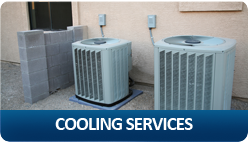As we breathe each day, we exchanges between 10,000 and 70,000 liters of air every 24 hours. And yet as compared with the concern for quality of food and water, air quality is comparatively overlooked.
The average person spends 90 percent of their time inside and unfortunately, indoor air is far more polluted than outdoor air. According to the EPA, indoor air contains 2 to 5 times more contaminants and sometimes as much as 100 times more.
Indoor air pollution is one of the most serious environmental threats to your health, and no agency can regulate it. However, properly cleaned and maintained heating systems and cooling systems will have a significant positive impact on the quality of your home's air.
Indoor air pollution has been linked to both short-term and long-term health problems. The EPA warns that the following conditions can be caused or exacerbated by poor indoor air quality:
- Asthma, allergies, and other respiratory problems
- Headaches
- Eye and skin irritations,
- Sore throat, colds and flu
- Memory loss, dizziness, fatigue and depression
There are other health problems that can be caused from highly toxic airborne particles and these show up years later and include heart disease, respiratory disease, and even cancer.
Those particularly vulnerable to indoor pollutants include infants, the elderly, and people who already suffer with heart and lung diseases, asthma, or compromised immune systems. Unfortunately, these are also the people who typically spend the most time indoors.
You can't always stop pollutants from coming in, but in some cases, you can prevent pollution from actually happening. Contact Greater Boston Plumbing to learn more about how your indoor air quality can be improved.







